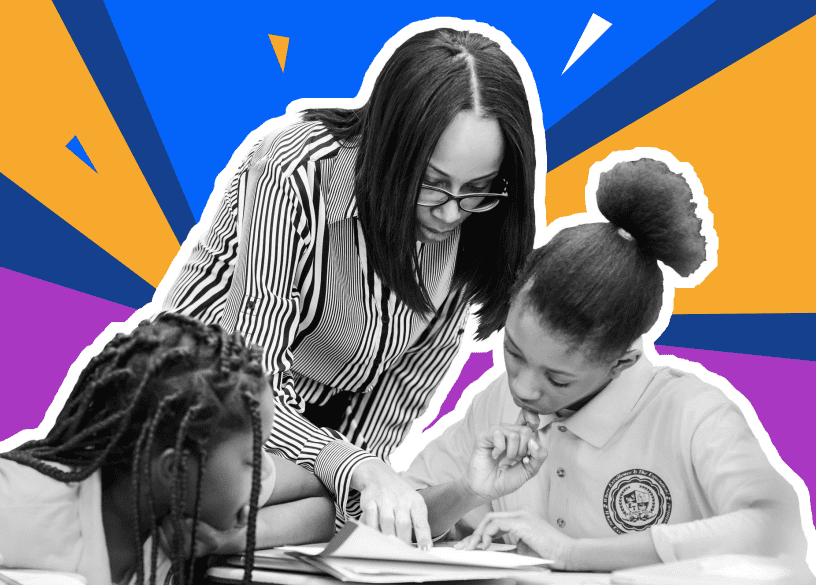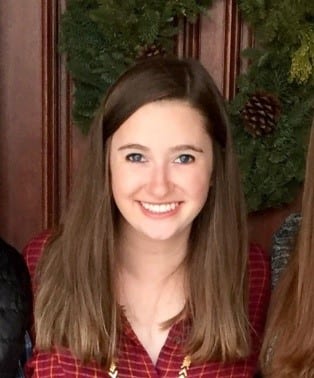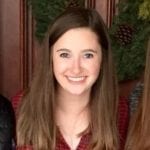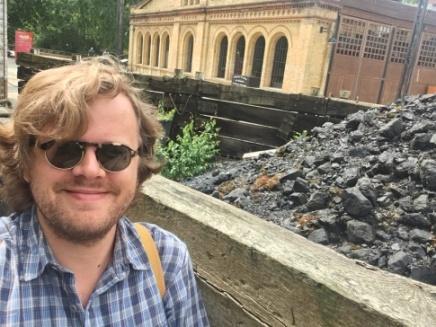
Informed by a new study and supported by CFF partners, Chicago Public Schools’ Opportunity Schools Initiative is expanding to provide dedicated teacher recruitment and retention support to more schools

Informed by a new study and supported by CFF partners, Chicago Public Schools’ Opportunity Schools Initiative is expanding to provide dedicated teacher recruitment and retention support to more schools

by the Chicago Foundation for Education
When the Children First Fund celebrates our partner-supported programs, we often focus on the big picture—how many schools adopted the program, how many scholarships were awarded, dollar-value of resources contributed, and other quantifiable metrics. But, while important, statistics don’t always show the personal impact of the investments. CFF Case Studies provide a more intimate look at how partnerships and high-impact philanthropy affect CPS students.
This Case Study, looking at a recipient of the Opportunity Schools Classroom Grant, was provided by our partners at the Chicago Foundation for Education, who awarded more than 500 grants and fellowships to CPS teachers in 2018.
In the summer of 2017, Megan Horan prepared for her first year of teaching, by collecting and purchasing books for her classroom at Randolph Elementary, a PK–8 school in Chicago’s West Englewood neighborhood. Ms. Horan stocked her room with Junie B Jones and the Captain Underpants series, as well as many other books she knew would interest her students. Unfortunately, Horan soon discovered that only 16 of the 51 students in her two classes were currently reading at a second- or third- grade level, so the majority of the books she acquired were too difficult.

Megan Horan
On top of that, Ms. Horan found that several of her students experienced severe emotional and behavioral issues that often distracted them from the learning environment. To help those students calm down, away from others, she would often send them out of the classroom, but she preferred to direct them to a private area within the room. That approach helped to normalize their emotions and prevent anyone from feeling ostracized. Using hand-me-down rugs and pillows gathered from friends, Ms. Horan created a sort of calming area in her classroom, but the space was small and not ideal for soothing an overwhelmed child.
Then Ms. Horan learned about the Chicago Foundation for Education’s (CFE) Opportunity Schools Classroom Grants, and she immediately applied to the program. CFE recognizes that as new teachers begin their career, they need resources to enhance both the classroom environment and student experiences. Through the Classroom Grants program, new teachers at CPS’ Opportunity Schools, including Randolph, were eligible for $500 grants to purchase resources and materials ranging from general classroom supplies to books to cultural and historical artifacts.
In her grant application, Ms. Horan outlined how she would use the funds to purchase more age-appropriate books as well as tools and comfortable seating for a secluded calming corner, where students could take a break and refocus without having to fully miss out of the classroom environment.
“My students are excited about reading, even those who are reading at a lower level, and they tend to be supportive and non-judgmental of each other,” wrote Ms. Horan in her application. “I encourage independent reading and want to offer options to further build their interest and their confidence, but to do this I need to expand our classroom library.”
In January of 2018, Ms. Horan learned she was among the 21 teachers to receive a CFE Classroom Grant that year. With her grant money, Ms. Horan was able to build her new classroom library and calming corner, and the results were all she had hoped for and more.
“I continually see improvements in their maturity-levels and their abilities,” said Ms. Horan. “With the new books and a calming corner, I’m certain they will be set up for success and will soar.”

by the Chicago Foundation for Education
When Chicago Public Schools and the Children First Fund celebrate our most successful partner-supported programs, we often focus on the big picture—how many schools adopted the program, how many scholarships were awarded, dollar-value of resources contributed, etc. While those statistics are important, they don’t always show the personal impact of the investments. CFF Case Studies provide a more intimate look at how a partnership or program affects CPS students and teachers.
This Case Study, looking at a recipient of the Fund for Teachers fellowship, was provided by our partners at the Chicago Foundation for Education, who awarded more than 500 grants and fellowships to CPS teachers in 2018 alone.
Fund for Teachers (FFT), one of the nation’s largest investors in teacher learning and leadership, offers PreK–12th-grade teachers from across the country the opportunity for self-designed fellowships to support student success, enrich their practice, and strengthen their schools and communities.
For Will Reed, a science teacher at Gwendolyn Brooks College Preparatory Academy on Chicago’s far south side, the FFT Fellowship experience was a game changer.
“I feel more committed than ever to teaching young people; implementing innovative ways to help my students learn to love science, analysis, and design; and imparting a global perspective.” Explained Mr. Reed after returning from Denmark, Germany, and the Netherlands this summer. “I also feel much closer to the excitement-filled learning experience that I hope to give my students than I have in years, and am more confident in my skill set and knowledge base.”
Mr. Reed was awarded an FFT Fellowship to research strategies for adaptation to and mitigation of climate change in Northern Europe in order to develop a problem-based learning unit that facilitates climate literacy and empowers students to understand and solve global problems through a local context.
With the program Mr. Reed developed, his students present their designs for a less greenhouse-gas-emitting, more resilient Chicago at a public showcase competition at their school. Community judges give honors to the best projects and acknowledgments to all participating students.
While abroad, Mr. Reed says he gained a deeper understanding of climate change science, activism, politics, and education, both internationally and in terms of climate-related work happening in Chicago. He better understands the history of global energy use and its relation to climate change. Furthermore, he says his fellowship afforded him much more familiarity with the ever-growing set of media and educational resources related to climate change.